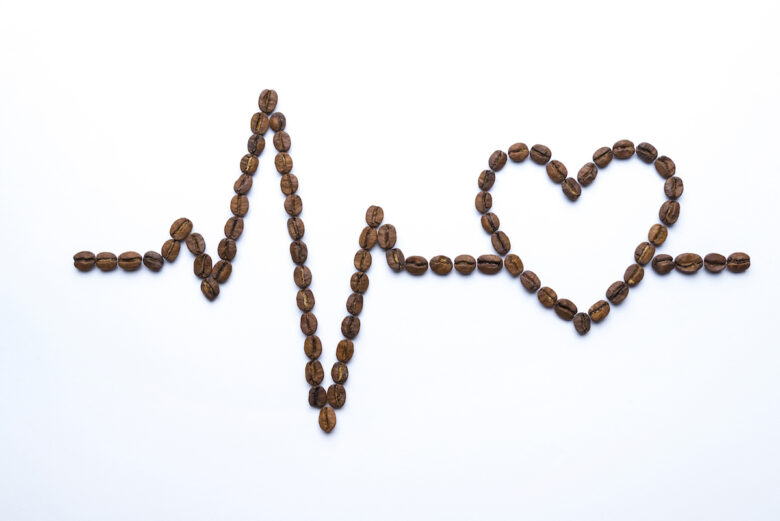Millions of people around the world enjoy coffee as a pick-me-up, but it is also a complex drink with interesting effects on our health, especially heart health. Despite coffee’s popularity, health experts have a different view on it. Some research suggests this may be bad for you, while other research suggests it may be good for you. How does coffee affect our heart? That’s all for this article.
What is Coffee Made From?
To make coffee, you have to roast coffee beans. These contain many chemicals that give coffee its taste and health benefits. Caffeine is a natural stimulant that changes the central nervous system and makes you more alert. This is what coffee does. In addition, coffee also contains antioxidants such as chlorogenic acid. These can help shield cells from free radical damage.
Coffee and High Blood Sugar:
Blood pressure is one of the most studied benefits of coffee. Caffeine, the main stimulant in coffee, can speed up adrenaline flow, temporarily raising blood pressure. However, this effect is usually mild and short-lived, and regular coffee drinkers can get used to it. Some research suggests that drinking coffee regularly may have a mild effect on blood pressure, but the evidence is not strong enough to be certain.
Coffee and Cholesterol Content:
Two chemicals in coffee, cafestol and kahweol, are known to increase cholesterol levels. These chemicals target low-density lipoprotein cholesterol, also known as “bad” cholesterol. These chemicals disrupt the way your body breaks down cholesterol, causing LDL cholesterol levels to rise. But if you use a paper filter when brewing coffee, these compounds will be less present in the final drink and have less impact on cholesterol levels.
Risk of Coffee and Heart Disease:
There are concerns that coffee may affect blood pressure and cholesterol levels, but some research suggests that drinking it in moderation may even reduce the risk of heart disease. In a study in the journal Circulation, multiple studies show that people who drink moderate amounts of coffee have lower rates of heart failure, stroke and coronary heart disease. Coffee contains antioxidants, especially chlorogenic acid, which can help reduce inflammation and help blood vessels work better, reducing the risk of heart disease.
Coffee Contains Antioxidants:
Coffee contains many antioxidants. Antioxidants help protect the cells in the body from damage caused by free radicals. Antioxidants are important for heart health because they reduce inflammation and oxidative stress, two substances that can make you more susceptible to heart disease. Some research suggests that the antioxidants in coffee may also help insulin work better and reduce the risk of type 2 diabetes, a major risk factor for heart disease.
Temperance and Differences between People:
Moderate amounts of coffee are generally considered safe for most people, but everyone reacts to coffee differently. Caffeine may have more adverse effects on some people than on others. These effects may include palpitations, nervousness, or sleep problems. Additionally, people with certain health problems, such as an irregular heartbeat or gastric reflux disease (GERD), may need to reduce or stop drinking coffee.
Conclusion:
In summary, coffee is a complex drink that has many effects on the body, some of which are bad for the heart. Some studies show possible risks, such as increased cholesterol and blood pressure, while others show possible benefits, such as a reduced risk of heart disease. For most people, drinking moderate amounts of coffee may not harm their heart health and may even help it. As with any dietary choice, it is important to take your own health into account and drink coffee in balance.
FAQs:
1. Does coffee make you more susceptible to heart disease?
Early research suggests that drinking coffee may make you more susceptible to heart disease because it changes your blood pressure and cholesterol levels. But new research suggests that drinking coffee in moderation may have neutral or slightly positive effects on heart health. Too much coffee can be harmful to your health, so it’s important to drink a balanced amount.
2. How much coffee is a reasonable amount?
Three to four cups of coffee per day, with each cup containing approximately 250 grams of brewed coffee, is considered moderate coffee consumption. But everyone has a different tolerance for caffeine, so your age, weight, and overall health should be taken into account when determining how much coffee you should drink.
3. Does drinking coffee make your heart beat faster or make you anxious?
Yes, drinking large amounts of coffee can cause palpitations, nervousness, or sleep problems in some people, especially those who are sensitive to caffeine. These symptoms occur more often in people who drink large amounts of caffeine in a short period of time. Pay attention to your body and vary the amount of coffee you drink based on what it tells you.
4. Does the way coffee is prepared change its heart benefits?
Yes, the way coffee is prepared can change its effect on cholesterol levels. There are two chemicals in coffee that can raise cholesterol levels: cafestol and kahweol. When you brew coffee, using a paper filter can help trap these chemicals, reducing the cholesterol-raising compounds in your coffee. If you prepare your coffee in a different way, such as espresso or French press, the levels of these compounds in the final drink may be higher.
5. Is there any information about how drinking coffee is good for you?
Yes, coffee contains many antioxidants. Antioxidants help prevent damage to cells in the body. Some research shows that the antioxidants in coffee can reduce inflammation and help blood vessels work better, reducing the risk of heart disease. Some diseases, such as Parkinson’s disease, Alzheimer’s disease, and type 2 diabetes, may be less likely if coffee is consumed in moderation.



